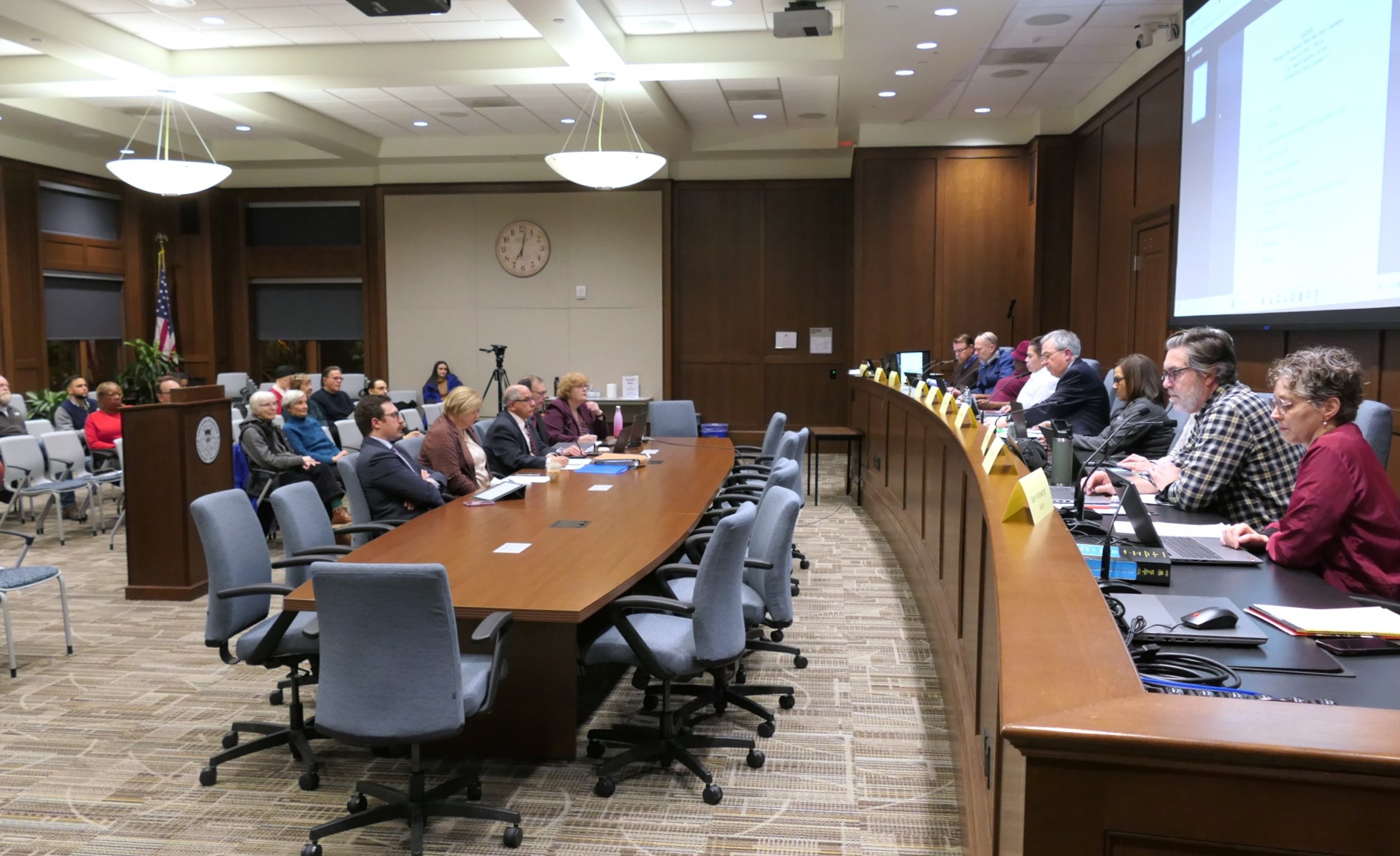Lancaster’s Home Rule Study Commission cleared away some preliminaries this week in preparation for drafting Lancaster’s new charter, setting up a quartet of committees and hearing from its consultants about the work ahead.
Thursday’ meeting was the first since the commission voted last month to proceed with creating a new framework for city government. It is expected to finish in time to place a referendum for city voters on the November ballot. If they approve it, the new charter would take effect in 2025.
“The entire state is watching us,” Chairman Brian Adams said. If the commission does its work well, he said, there’s every chance that other municipalities will follow its lead.
The commission should plan to finish drafting it by late July, Solicitor Barry Handwerger and Pennsylvania Economy League Senior Research Fellow Gerald Cross, said. That will allow time to prepare the explanatory report that accompanies the charter; provide the charter and report to the county elections office, which by law must receive them at least 60 days before Election Day; and conduct a public education campaign to promote the charter’s adoption.
The commission’s tentative schedule calls for meeting twice a month. That would give it just nine more meetings before the end of July and two more in August to complete its tasks as outlined; but Cross assured One United Lancaster that the schedule is just a starting point, and more meetings can certainly be added down the road as needed.
Some of the work will be offloaded to committees. The commission set up four on Thursday, as follows:
- Preamble Committee: Peter Barber, Maxine Cook, Tony Dastra.
- Purpose: To draft the charter’s opening statement of intent.
- Public Engagement Committee: Elizabeth Elias, John McGrann, Amy Ruffo.
- Purpose: To gather input from the public as needed, and to educate the public about the charter and referendum.
- Finance Committee: Darlene Byrd, Carl Feldman, John McGrann.
- Purpose: To research and analyze financial considerations relevant to drafting the charter, such as budget and tax projections.
- Ad Hoc Committee on an Ethics Commission: Darlene Byrd, Tony Dastra, Carl Feldman.
- Purpose: To research whether the charter should include an independent body to review city ethics issues. Feldman, who proposed the committee, said he has reached out to the leader of Pittsburgh’s Ethics Hearing Board, who is interested in providing input.
As Handwerger noted, committees, like the commission itself, are subject to Pennsylvania’s Sunshine Act, so their meetings must be advertised in advance and open to the public.
Scope of work

Cross told commission members they can approach their work in one of two ways: They can start from scratch; or they can begin with the city’s existing charter and make modifications. To help decide, he suggested each member summarize his or her main takeaways from the commission’s months of studying governmental structure and operations.
At least five members said city government, despite its imperfections and resource constraints, is fundamendally functional. Lancaster isn’t facing a crisis, Adams said: Rather, the commission’s task is to take a city that’s doing pretty well and make some “tweaks” to bring its governance into the 21st century.
City officials are looking to one tweak in particular: raising the cap on the earned income tax, or EIT. Mayor Danene Sorace and other city officials have said that doing so could help cover the city’s strucutral deficit without constantly resorting to property tax hikes.
Bolstering City Hall’s resources could help make it more responsive and effective, John McGrann and Carl Feldman said. The recent Gunzenhauser Bakery demolition is a case in point, Feldman said: The city’s inspection bureau has to make tradeoffs due to tight budgets and limited staffing, and understandably it prioritizes occupied rentals over abandoned commercial properties.
As she has in past meetings, Darlene Byrd argued in favor of taking a bold approach, one that goes well beyond adjusting the EIT. There are many aspects of city government that don’t work well, she said, and they can be changed: “Nothing’s stopping us.”
Maxine Cook and Elizabeth Elias echoed Byrd. Tony Dastra said there are residents who genuinely feel city government doesn’t work for them and that he wants to ensure representation for all constituencies.
Peter Barber cautioned his colleagues to take the long view and think in terms of “guiding principles,” not detailed policy. The commission should be thinking, “How do we keep it simple?” he said.
What’s next
Drafting the charter will start by deciding on the parameters for Lancaster’s legislative body — what is now City Council. The commission will choose the number of members, their qualifications and terms and so on.
Then come other elected officials, including the mayor, then rules around passing legislation, adopting budgets and other administrative matters.
Everything will involve compromise, Cross said. He said he will frequently act as devil’s advocate: “If we challenge an assumption, it’s because we want you to think it through.”
Dastra and Byrd have expressed interest in electing council members by ward rather than citywide. If the commission takes that route, it has the option of taking two more months to allow for the administrative work involved in drawing ward boundaries. Dastra asked PEL to game out what the longer timeline would look like.
That prompted Mayor Danene Sorace to urge the commission to stick to the November Election Day deadline. The city is already looking at drafting two budgets for 2025, she said — one for home rule being enacted, one for it not. It does not want the issue delayed another year, as would happen if the referendum were postponed to the Spring 2025 primary.






